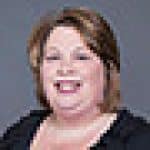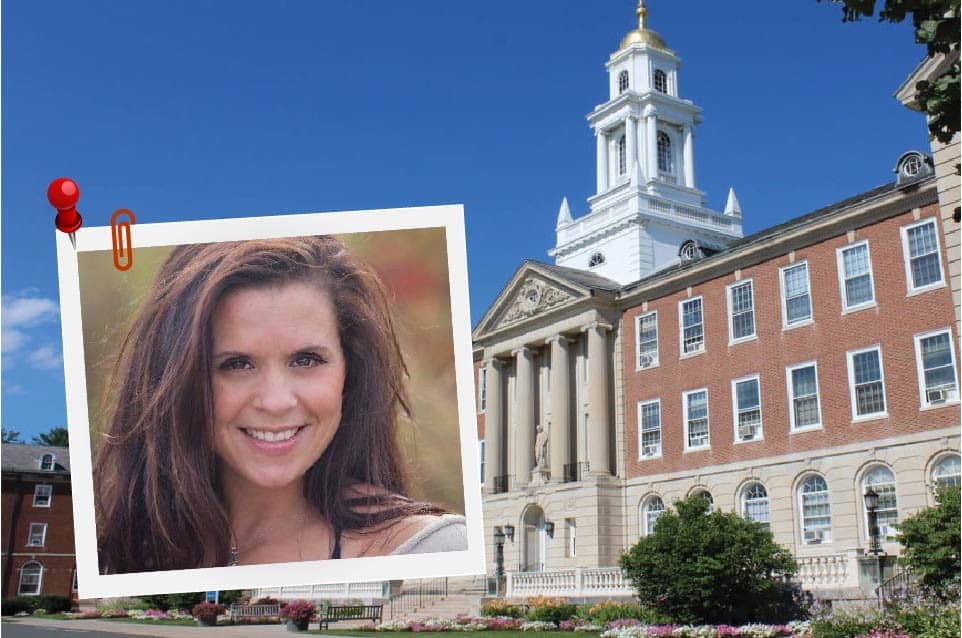What program do you teach at University of Saint Joseph? What drew you to this field of study? What keeps you excited about it?
I am currently an adjunct instructor in the TESOL Graduate Program. Currently, I occupy several roles in this field, including current K-12 ESOL classroom teacher, TESOL doctoral student, and curriculum designer. I am a scholar practitioner in the growing ?eld of English language pedagogy and leadership, and in culturally and linguistically diverse teaching and learning.
I attribute this to continuous engagement in a cycle of learning, implementation and reflection. TESOL has ignited a new passion in my 23-year teaching career. I am fascinated by languages — how they evolve, how we learn new ones, and how we support all students who are fortunate to be developing multilingualism in the K-12 setting.
How will your program better prepare/equip educators for the current climate were in, specifically with COVID-19?
Our program is responsive and student-centered. Small class sizes and instructors, who are also practitioners, are able to relate to the demands of our candidates who are often busy classroom teachers as well. We are creative and fluid, allowing instructors to personalize delivery of our program, yet the content is consistent, relevant and challenging.
During the COVID-19 pandemic, we were successful in shifting to an online format, because we had already initiated the creation of hybrid-style classes in which students and instructors were using digital platforms to communicate and share ideas. The smooth shift to online learning during the pandemic is evidence of an organization that is forward-thinking and working to grow and improve at each opportunity.
What attracted you to University of Saint Joseph to teach at? What sets them apart?
I recommend this institution because of the constant reflection and revision that supports continued growth in the area of TESOL. As a member of the TESOL Advisory Committee, we ensure that our curriculum is not stagnant or dated. We meet regularly as a team to review new research in the field and adjust our program objectives, content and literature to reflect the most recent findings in theory and in practice.
The TESOL Advisory team includes a diverse cohort of professionals representing various facets of the TESOL field. We are collaborative and determined to remain relevant and rigorous so that all graduates of this program are truly prepared to advocate for students and carry forth the important work of the TESOL professional.
What is your professional background (including degrees) as an educator?
I began my career in 1998 as an elementary classroom teacher. I earned a masters’ degree in Holistic Teaching and Learning, followed by two years of training in Mathematics Content Focused Coaching with the University of Pittsburgh’s Center for Teaching and Learning. My work as a district coordinator and instructional specialist includes large-scale mathematics curriculum and instruction initiative rollout, implementation and revision processes. In 2015, I earned a second masters’ degree from the University of Texas at Arlington in Curriculum and Instruction in Mathematics Education.
I returned to the role of classroom teacher in an urban middle school in 2017, leading students and colleagues in English language acquisition strategies and academic content language teaching and learning. I also hold a teaching certificate in TESOL. Currently, I am a Ph.D. student studying TESOL. My developing dissertation research focuses on equity in culturally and linguistically diverse mathematics classrooms.
I intend to lead change to our education system on a macro-level through recruitment of a diverse teaching force, one that is rigorously trained to lead the next generation of students to success while navigating the demands of a 21st-century society.
Tell us a little about yourself. Why did you become interested in education?
As a veteran teacher, it seems I have always been a student myself! For more than half of my career, I have been enrolled in a university taking additional courses, actively seeking more knowledge in the education field. As a child, I always struggled with mathematics. I simply did not understand, and sadly, like many others, concluded that I simply was not good at math. It was not until I became a sixth grade teacher and needed to teach math, that I realized that the reason for my struggle was not my shortcoming, but it seemed to be the instructional practice employed in my educational experience. Upon realizing this, I focused my work in learning as much as I could about developmental mathematics pedagogy. All students can be successful. As educators, it is our commitment to determine each student’s individual path to deep conceptual understanding.
I went back to university to study curriculum and instruction in mathematics education. Upon earning a second master’s degree in this field, I set out to support colleagues in developing math instruction that was inclusive of all student learning styles and diverse needs. My current role as a TESOL teacher and Math Specialist is an organic development born out of need, curiosity, and a desire for equitable teaching and learning for all students.
What would you tell prospective students considering your program about yourself? What’s something that students and colleagues should know about you?
I present clear and rigorous expectations for engagement and application of high quality and effective ESOL pedagogy. I am fiercely passionate about advocacy for the students we serve. My work includes learning how to build strong systems and structures to support our students’ experience upon arrival and beyond into higher education. As TESOL teachers, we must commit to learn as much as we can about culturally and linguistically diverse teaching and learning so that we can lead the work in equity throughout the school community through high quality, informed, and inclusive educational opportunities.
What advice do you have for students interested in pursuing their TESOL degree? How can people stand out in this field?
Stay current in developments in the rapidly growing research field of English language teaching, learning and leadership. Always seek out new opportunities, take risks in pedagogy, and always advocate for our students first.
Is there anything else you would like to share?
My goals as a TESOL Instructor at the University of Saint Joseph and as a doctoral student include continuous engagement with educators through meaningful instruction and hands-on coaching that prepares them to serve as advocates for all students. In my work, I strive to help build a community with a professional capacity of knowledgeable and skilled teachers who can develop and foster the equitable, rigorous and relevant educational experiences that our students need in order to be successful in a 21st century society.
I believe that in order to support equitable change in our education system, we need to work at a macro level, with a focus not only in developing and fostering a linguistically and culturally diverse force of qualified educators, but also in identifying effective systems and structures to support this work.


